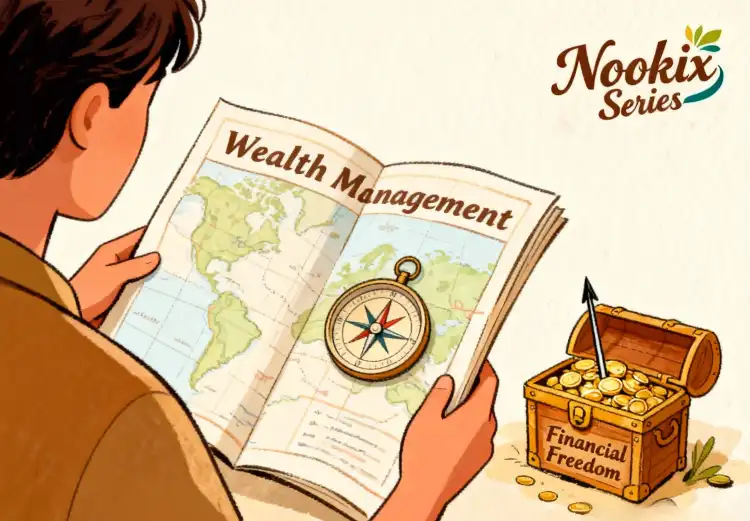
Your First Wealth Map: A Beginner's Guide to Financial Freedom
There's a quiet anxiety that often creeps in at the end of the month. You look at your bank account, and you can’t quite figure out where the money went. You work hard. You earn a decent salary. Yet, you feel like you’re running on a treadmill, living paycheck to paycheck, with the dream of financial security feeling impossibly distant.
If this feels familiar, know that you are not alone. And more importantly, know that the problem likely isn't your income. The real issue, and the key to unlocking a different future, lies in our deeply ingrained relationship with money itself. It’s a subject we’re rarely taught, and one we often misunderstand. We think wealth is about math and spreadsheets, but it’s far more about psychology and behavior.
This profound book reveals that financial success isn't about what you know; it's about how you behave. Understanding this simple truth is the first step. It frees you from the belief that you need to be a genius to build wealth and allows you to focus on what truly matters: your mindset and your habits.
This journey often begins with a single, powerful revelation that completely reframes how you see the world. It’s the fundamental difference between how the rich and the poor think about money, a concept brilliantly illustrated in a book that has changed millions of lives.
Its core lesson is deceptively simple: you must understand the difference between an asset (something that puts money in your pocket) and a liability (something that takes money out of your pocket). The wealthy spend their lives acquiring assets. The rest of us spend our lives acquiring liabilities that we think are assets. Internalizing this single idea is like being handed a new map to a world of financial possibility.
But a new map is useless without a first step. This is where theory meets action. For many of us, the biggest hurdle is willpower. We know we should save, but it’s hard. The most effective solution, then, is to remove willpower from the equation entirely.
This book champions a simple, powerful concept: Pay yourself first, automatically. Set up an automatic transfer from your checking account to a savings or investment account the day you get paid. It’s a small, one-time action that builds wealth in the background, effortlessly. For a more comprehensive system on how to automate your entire financial life—from savings to bills to guilt-free spending money—there is no better guide.
Once this automated system is running, a new, exciting question arises: what should you do with the money that's now accumulating? This is where many people freeze, fearing the complexity and risk of investing. They imagine it’s a high-stakes game reserved for Wall Street experts. But the truth is, the most effective investment strategy for most people is shockingly simple and accessible.
This timeless classic demystifies the market, arguing that for the vast majority of investors, the most reliable path to wealth is to consistently invest in low-cost, diversified index funds. It’s a strategy that requires no market-timing, no stock-picking genius, just discipline and a long-term perspective.
As you embark on this path, it’s helpful to remember the ultimate goal. The purpose of building wealth isn't just about accumulating more money. It's about buying back your freedom, your time, and your options. It's about reaching a state where your money works for you, not the other way around. This modern philosophy of wealth and happiness is captured beautifully by the investor and philosopher Naval Ravikant.
He reminds us that true wealth is not having to be at a particular place at a particular time. It's the freedom to be creative, to pursue your curiosity, and to live life on your own terms.
This entire journey, from confusion to clarity, can feel daunting. But it doesn’t have to be. At its heart, the process is simple and can be understood even by a child, as one of the most heartwarming finance books ever written shows us.
It teaches us, through a charming story, to start with a dream, to build our confidence through small wins, and to let our money grow, patiently and consistently.
Ultimately, building wealth is not a sprint; it’s a lifelong journey of learning and discipline. But it’s a journey that starts not with a grand, complicated plan, but with a single, simple decision: to change your relationship with money, and to take that first, small, automated step today.
